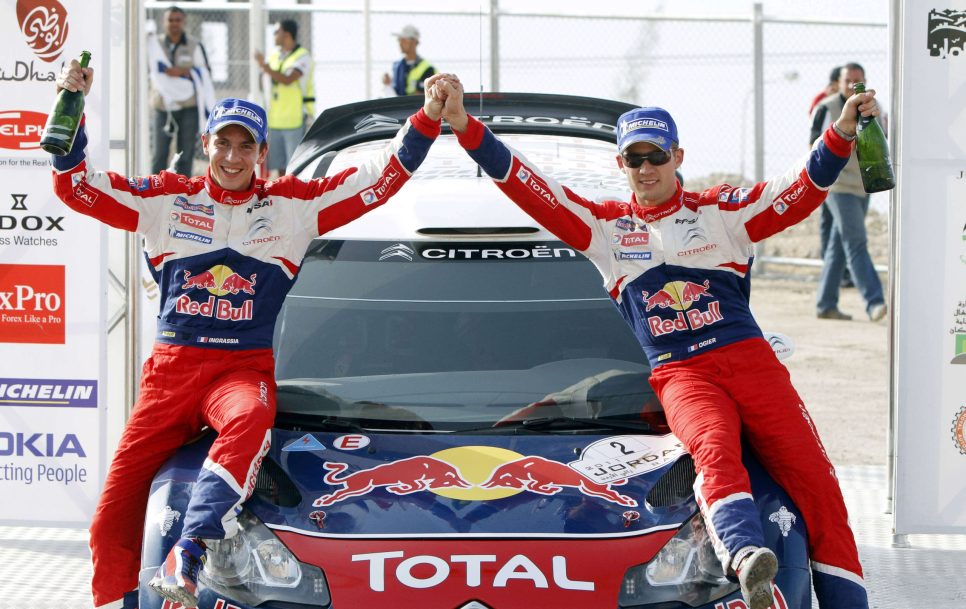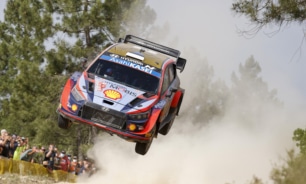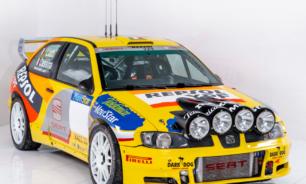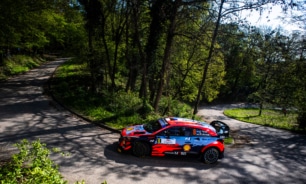Breathtaking WRC duels that sent shivers down the spine
This year’s WRC Safari Rally Kenya was written in the history books as one of the closest ever. The winner, Sébastien Ogier, finished only 6.7 seconds ahead of his teammate Kalle Rovanperä, who came in second. However, this narrow margin is only significant in the context of the desert rally, as it doesn’t even make it to the TOP 30 closest finishes in WRC history.
To break into the TOP 30, Rovanpera would have needed to shave off another four-tenths of a second because the 30th place in the respective ranking stands at 6.3 seconds. The cutoff for the TOP 20 is at 5 seconds, and for the TOP 10, it’s at a mere 2.4 seconds.
History has witnessed five races where the top two finishers were separated by less than a second. Here are the TOP 5 closest finishes.
4th-5th place – 2018 Rally Italia Sardegna (0.7 seconds)
Although Ogier won only two out of the nine stages on the opening day of the rally, he still managed to build a comfortable 18.9-second gap ahead of Thierry Neuville by the end of the day.
Ogier continued to secure two stage wins on Saturday, but couldn’t extend his lead any further. Neuville had closed the gap to just 3.9 seconds, making the final day extremely thrilling.
With the 17th stage, Neuville crept even closed, with just 3.1 seconds behind the Frenchman, then 1.3 seconds behind with the 18th stage, and finally 0.8 seconds behind with the penultimate stage.
On the power stage, the inevitable happened: Neuville overtook Ogier and claimed victory with a 0.7-second advantage, jumping into the Mediterranean as the triumphant winner.
4th-5th place – 2017 Rally Argentina (0.7 seconds)
The 2017 Rally Argentina should have belonged to Elfyn Evans, considering that the Welshman led the race for 16 out of the 18 stages. However, he didn’t hold the lead only after the first stage and… after the last stage.
After the opening day, Evans had built up a lead of just under a minute, ahead of his closest pursuer, Neuville. But over the next two days, the Belgian quietly closed in on him until, before the final stage, Evans’ lead had dwindled to a mere 0.6 seconds.
Evans, determined not to give up the victory, was leading the infamous El Condor power stage splits by a comfortable 3.1 seconds… until he drove his car into a bridge and ended up falling 0.7 seconds behind the Belgian.
A driving mistake on the final stage cost Evans the victory by the tiniest of margins.
3rd place – 2021 Rally Croatia (0.6 seconds)
When the WRC series visited Croatia for the first time two years ago, nobody knew what to expect. By now, we know that the Croatian roads set the stage for the closest asphalt rally in history.
The eventual winner, Ogier, could have very well ended his rally on the first stage, but a roadside stone saved him from going off. After the opening day, the Frenchman was 7.7 seconds behind Neuville.
By Saturday noon, Ogier had taken the lead, but a puncture on the 13th stage caused some disruption. Nevertheless, he ended the day in first place, leading Evans by 6.9 seconds.
However, Sunday began with (quite literally) a bang for Ogier, as he was in a traffic accident in between stages and had to continue with a broken door.
This allowed Evans to pass him and start the power stage with a 3.9-second advantage. Everything seemed to go according to Evans’ plan until he overshot the final(!) corner of the rally, losing momentum and rolling over the finish line… 4.5 seconds slower than Ogier.
Indeed, a driving mistake on the last stage once again cost Evans the rally victory by an incredibly narrow margin.
2nd place – 2007 Rally New Zealand (0.3 seconds)
In the early 2000s, Sébastien Loeb and Marcus Grönholm had several intense battles, and one of the most exciting took place in New Zealand in 2007.
Before the final stage, Loeb was trailing the Finn by 0.7 seconds. He gave it his all on the last stage, winning the Mystery Creek Super Special – yes, that’s the name of the WRC stage, not a track in Mario Kart. Unfortunately for the Frenchman, Grönholm also put the pedal to the metal, and although he finished 0.4 seconds behind Loeb, it was enough to spray the victory champagne.
“It was an incredible battle throughout the weekend. It’s the closest victory and the best fight of my career,” said Grönholm after the win.
1st place – 2011 Rally Jordan (0.2 seconds)
The 2011 Rally Jordan is remembered for two reasons: firstly, Friday was canceled due to logistical problems, and secondly, Jari-Matti Latvala and Ogier engaged in a fierce battle.
After Saturday’s stages, Ogier had a lead of just over 30 seconds over his competitors: Loeb (+31.6) and Latvala (+33.1).
But on Sunday, the tables turned: by midday, Latvala had closed in on Ogier and was now 18.9 seconds behind. And just before the final stage, he managed to pass the Frenchman by 0.5 seconds!
However, it wasn’t enough for victory. On the last stage, Ogier was 0.7 seconds faster than Latvala, snatching the rally win by a mere 0.2 seconds.
“Unbelievable, an unbelievable day. I had to push like hell today because Jari-Matti was just so fast,” said the victorious Ogier at the finish line.
The largest margin of victory in history…
Lastly, let’s take a look at the biggest winning margins in rally history. While one might assume they originate from the African continent – due to its typically long and challenging stages – the top spot doesn’t belong to Africa.
The most dominant victory in WRC history actually comes from the 1973 Polish Rally, where German driver Achim Warmbold – with former FIA President Jean Todt as his co-driver – finished 2 hours, 47 minutes, and 20 seconds ahead of East German driver Egon Culmbacher, who came in second!
The podium was completed by another driver who was 3 hours, 40 minutes, and 35 seconds behind. The reason for such a large time difference? The rest of the field, consisting of 62 other participants, retired!
Another significant winning margin was witnessed at the 1975 Morocco Rally, where Finnish driver Hannu Mikkola – with Jean Todt as his co-driver once again – finished 1 hour, 41 minutes, and 15 seconds ahead of French driver Bernard Consten.
Only 14 out of 103 crews reached the finish line, and the third-place finisher had a deficit of 2 hours, 17 minutes, and 31 seconds…









